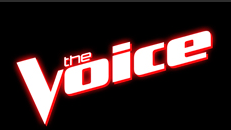 What do you have in common with Cee Lo Green, Christina Aguilera, Blake Sheldon, and Adam Levine? If you spend time searching for top talent, quite a lot! After all, with the rise of HR phone screening and first-round phone interviews, recruiting is beginning to resemble the blind auditions on the blockbuster TV show, The Voice.
What do you have in common with Cee Lo Green, Christina Aguilera, Blake Sheldon, and Adam Levine? If you spend time searching for top talent, quite a lot! After all, with the rise of HR phone screening and first-round phone interviews, recruiting is beginning to resemble the blind auditions on the blockbuster TV show, The Voice.
On The Voice, blind auditions ensure that talent is judged fairly, with no bias based on their appearance. On the recruiting front, the voice of a job candidate could unwittingly cause bias or at least weigh heavily on the decision-making process of an interviewer.
Now, some would say that candidates actually benefit from phone screenings because initial decisions are not influenced by a candidate’s appearance or body language. However, research suggests that many candidates’ voices could sway first impressions and damage their chances for a second interview. After all, it’s human nature to make silent judgments about people based on how they speak.
The Book How to Say It, by NYU speech communication professor Jeffrey Jacobi, reveals that high, shrill voices can come across as flighty or frivolous; loud and grating voices can unhinge people and turn them off; and weak voices make the speaker seem less mature and experienced. These voice attributes can create difficulties for the candidate, who may not be taken seriously when interviewed over the phone.
According to Quantified Impressions blog, analytical data shows that 38 percent of others’ impressions are driven by the sound of a person’s voice, “… especially in the workplace, accents often come with stereotypes.” For example, a survey from Harris Interactive revealed that those with southern accents are thought to be nice, although possibly uneducated, while people with a New England accent are considered to be more intelligent. The survey also asked adults with differing regional dialects to consider four equally qualified applicants who were distinguishable by accent alone. As expected, people usually selected applicants whose accents were similar to their own.
University of Chicago research from 2010 suggests that people tend to distrust messages that are hard to process. Therefore, we surmise that speaking with a heavy foreign accent reduces understanding and could send a negative message to the brain of an interviewer. If a recruiter or hiring manager is not motivated to understand foreign speakers, according to the research, “the speaker has little chance of altering this prejudice.” But they must, because, “Generally, an employer may only base an employment decision on accent if effective oral communication in English is required to perform job duties and the individual’s foreign accent materially interferes with his/her ability to communicate orally in English.” (uslegal.com)
What about male job candidates with effeminate sounding voices? Interviewers should be mindful of the unfair workplace bias against men who don’t have traditional male speech patterns. Federal courts have been confronted with many employment discrimination claims involving harassment, retaliation, or disparate treatment based on the effeminate sound of a male employee’s voice. There are similar discrimination claims by minorities and those with speech impediments who were mistreated at work because of the unique properties of their rhetoric.
Even though hiring professionals make conscious decisions to abide by employment laws and personal codes of ethics, they’re only human. This research suggests that subconsciously most people make assumptions based on the voices of others; assumptions about everything from age to education, to capabilities, to heritage — even sexual orientation! And that’s cause for concern.
One final — and very telling — piece of information. Duke University researchers found that CEOs with lower voices manage larger companies and, in turn, make more money. These findings underscore the effects that the voice has on corporate America.
Armed with all of this information, how can interviewers stay neutral and get the fairest and best outcome from each phone screen or phone interview?
- Stick to prepared questions when interviewing.
- Focus on the content of the conversation.
- Listen to the person’s conversational approach skills to determine if it is focused and purposeful.
- Evaluate the candidate’s attitude. Is it can-do, upbeat, and positive?
- Critique the applicant’s preparation. Were they ready and on time for the interview? Did they ask appropriate questions? Do they seem genuinely interested?
- Stay objective. If you have an uneasy feeling during or after the phone conversation, ask yourself, “Why?”
- Never assume the voice matches a person’s image, education, or skill level.
If we consciously recognize the role the voice plays in the decision-making process, we might see better talent make it to the final round of the interview process.